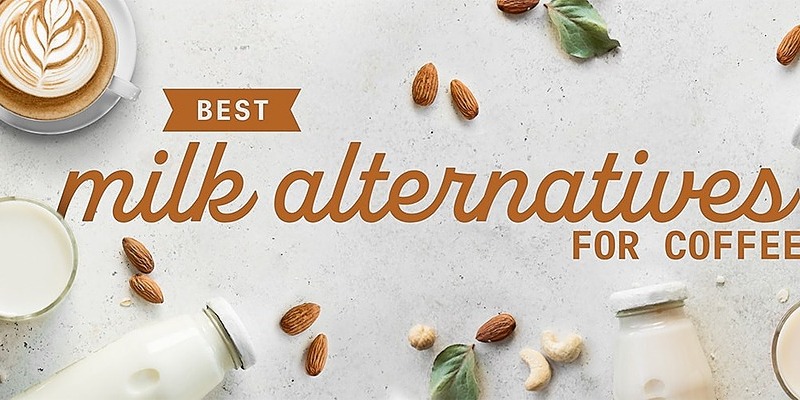1. Oat Milk
Oat milk has become one of the most popular dairy-free milks to use in coffee drinks. It’s made from a combination of oats, water, and sometimes canola oil or rapeseed oil for emulsification. The result is surprisingly full-bodied dairy-free milk with a richness that rivals whole dairy milk.
Oat milk is also prized for its fiber content. This dairy-free milk appeals to health-conscious customers because it contains relatively little fat without sacrificing the protein that you can get from dairy milk. The addition of fiber, however, sets this dairy-free milk apart and makes it the perfect choice for customers who are looking to boost their digestive health.
2. Coconut Milk
Prized for its thick, creamy texture, coconut milk is quickly becoming a favorite dairy alternative for coffee drinkers. Coconut milk has a good fat content that plays well in coffee drinks, and many brands have a neutral taste with only a hint of coconut flavor. Just make sure to use the coconut milk packaged in cartons, not cans. Canned coconut milk is much thicker and has a stronger coconut taste.
Health benefits of coconut milk
- Weight loss. Coconut milk contains a type of fat called medium-chain triglycerides (MCTs). …
- Heart health. …
- Antioxidant protection from disease. …
- Antimicrobial activity fighting infection. ( Medically reviewed by Sade Meeks, MS, RD, Nutrition — By Jamie Eske — Updated on February 10, 2023)
3. Soy Milk
Soy milk is easily accessible in most areas, and its relatively affordable price makes it an attractive option for many businesses.
Some soy milk curdles in coffee as a reaction to the acidity or hot temperature. Soy milks without preservatives may be more prone to separating in your customers’ coffee. If you think temperature is the problem, try pouring warm soy milk into your serving cup and slowly adding the coffee.
4. Rice Milk
Because this dairy alternative is both nut- and soy-free, it is growing in popularity for coffee drinkers with allergies and lactose sensitivities. If you want a hypoallergenic option for your coffee shop, rice milk could be the dairy-free milk for you.
5. Cashew Milk
More and more people are reaching for cashew milk because of its creamy texture that mimics dairy milk in coffee. This being said, many baristas argue that house-made cashew milk is better for taste and steaming. If you want to incorporate cashew milk into your coffee offerings, weigh the costs and benefits of producing your own.
6. Pea Milk
Because pea milk is made from the protein of yellow peas, it doesn’t have the green color you might expect it to have. Pea milk has a relatively high protein content compared to other dairy-free alternatives, and it also contains a healthy dose of potassium.
7. Almond Milk
Almond milk is one of the most popular nut milks in the dairy-free market. It comes in several flavors, and many manufacturers produce both sweetened and unsweetened varieties. However, when it comes to coffee, almond milk doesn’t perform as well as some other dairy-free milks.
Unfortunately, almond milk can curdle in coffee for the same reasons as soy milk: temperature and acidity. To combat curdling, avoid pouring cold almond milk into very hot coffee. Its reaction to the acidity of your coffee may vary between types of coffee roasts and brands, so be sure to try several options if you want to make almond milk a mainstay on your beverage menu.
Posted in:Coffee & Tea|Foodservice Trends|By Christine Potts













